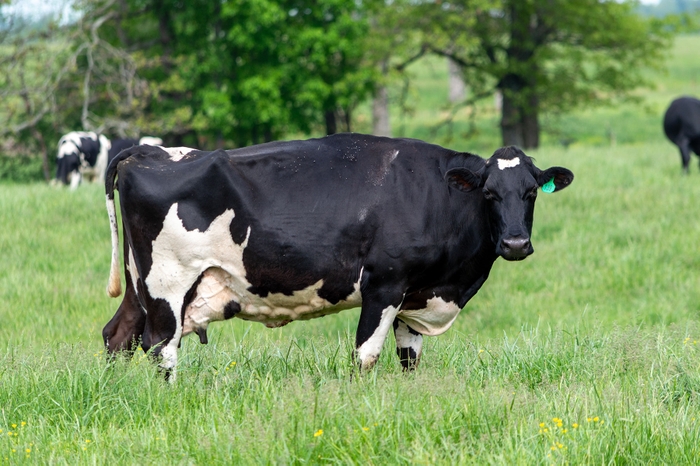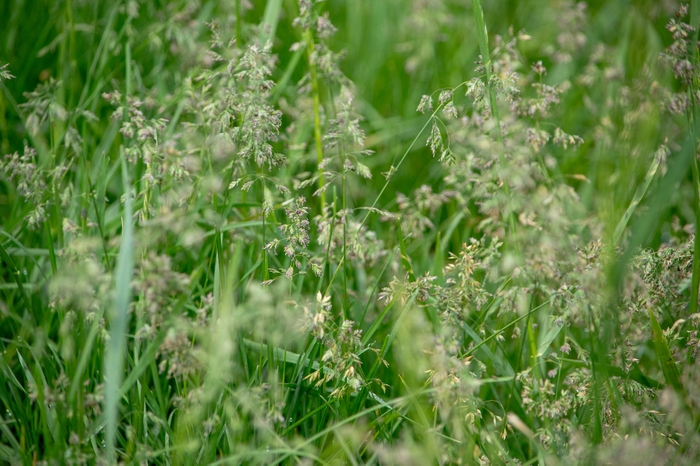by Joann Pipkin
Educating consumers wasn’t on Norris Sloan’s radar when he started dairying more than four decades ago. But today, serving as an industry advocate is one of the Douglas County, Mo., dairyman’s most important tasks.
Tucked away deep in the hills of south-central Missouri, 15 miles from the nearest town, Sloan often pauses his daily routine for a lesson in milk nutrition and pasteurization to a passerby.
The scene is a stark contrast from early days in the dairy business when talk among producers focused solely on milk prices.
“Being involved in dairy organizations is more about educating consumers than it is [networking] with dairy farmers,” Sloan says.
Sharing the dairy story
In what was once a dairy hot spot with five milk trucks passing by his house daily, Sloan says now one lone hauler travels 100 miles to fill a load.
Still, the veteran dairyman thrives amid the industry he sought.
In a day and time when a disconnect between producer and consumer looms on every street corner and down every country road, Sloan finds great value in his chosen profession.

CARE FOR COWS: Dairy cows rotationally graze pastures at the Sloan farm. It is a way make the most of the farm’s best asset: grass.
Through his involvement in organizations such as the Midwest Dairy Association, Missouri Dairy and Dairy Farmers of America, as well as the local school system, Sloan has come to embrace the disconnect.
Producer to consumer, one conversation at a time, he works to connect the dots. It all starts with telling his own story.
Charting his own course
Now in his 46th year, Sloan, a first-generation dairyman, overcame obstacles to become a full-time farmer.
He entered the business in the 1970s with only a Holstein heifer, which was gifted to him after he was named Star FFA Greenhand. Once the heifer was bred and calved, a neighbor stepped in to help with milking.
After high school, Sloan worked for an uncle in a dairy equipment service and sales business while devising a plan on how to become a dairy farmer.
In 1978, Sloan married Annette, and soon after, he purchased cows and began milking on a leased dairy. All the while, the young couple worked off-farm jobs.
The early years were challenging for the Sloans. Still, they eventually secured financing and purchased additional cows. Sloan quit his off-farm job and purchased the leased dairy operation.
Overcoming the odds
Dairying through the decades that followed was no easy feat.
From drought to high interest rates, the Sloans navigated the challenges by keeping expenses in check while using their biggest resource to their best advantage.
“Grass is our asset,” Sloan says simply.
Cows rotate from one pasture to the next every few days to keep them grazing fresh grass. The protocol works well until the species grow dormant.

RIGHT MIX: Native fescue mixes with legumes and orchardgrass flourish in southwest Missouri pastures. They are key for low-input dairy production.
While the rugged Ozarks hills are prime land for grazing cattle, the terrain is less than ideal for growing crops such as corn for silage. Transportation challenges make hauling in premium forages cost-prohibitive.
“We’re challenged here because byproducts are not close,” Sloan says. “Everything must be hauled in here in a truck. So, unless you can figure out how to do something [for feed] on your own, you must be satisfied with a little less production.”
Everything fed to the dairy cows is home-raised.
Native fescue mixes with legumes and orchardgrass in Sloan’s pastures. They also put up hay, focusing on timely, early harvest to ensure quality forage.
Navigating through change
Today, the Sloans milk about 100 Holsteins, bred to mostly beef bulls. The farm plan is to transition to beef cattle when the couple is no longer able to dairy.
The couple’s children do not plan to take over the operation, but a larger concern is labor to sustain the business.
“Times have really changed,” Sloan says. “[Used to be] we would always have somebody stopping by asking for work.”
Blessed with a dependable community-based workforce over the years, Sloan says the future remains uncertain because of the rise in the minimum wage and fewer people seeking employment.
Pipkin writes from Republic, Mo.
Source: farmprogress.com

Leave a Reply